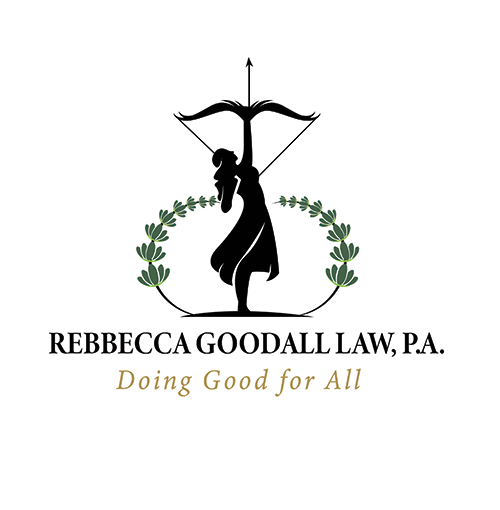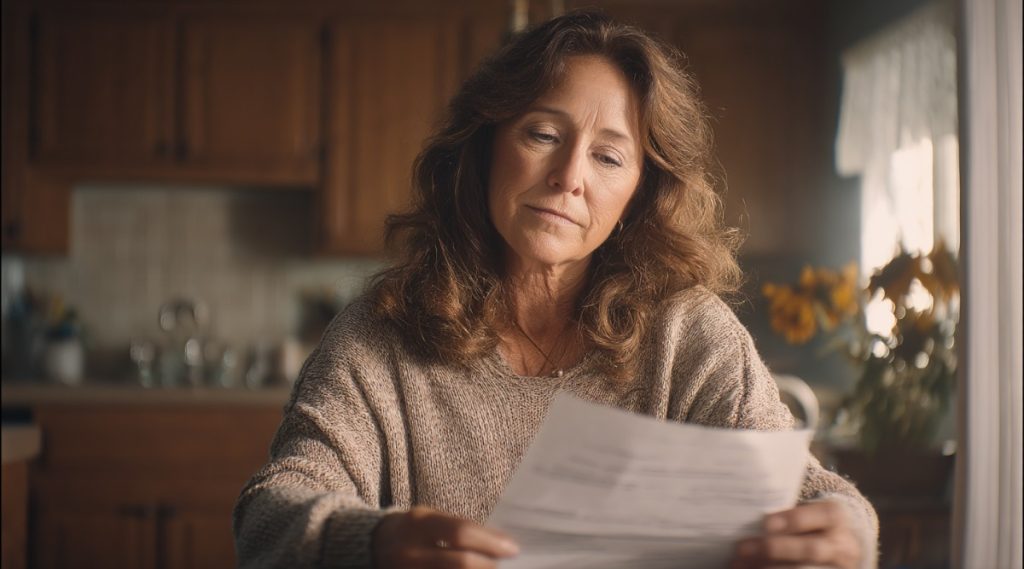Have You Received Bills for a Deceased Family Member, Spouse, or Parent?
Few experiences are more painful than losing someone close. Unfortunately, that pain is often made worse when debt collectors begin calling about the deceased person’s accounts. These calls are not only distressing — they’re often illegal.
At Rebecca Goodall Law, P.A., we help families throughout Florida stop harassment, clear misinformation, and understand what debts — if any — they may truly be responsible for. If you’ve received a bill or phone call demanding payment for a loved one’s debt, don’t pay or respond until you’ve spoken with an attorney.
What Happens to Debts After Death
When a person passes away, their debts typically become part of their estate. That means creditors can only seek payment through the probate process, not from surviving relatives directly. In most cases, once the estate is settled, any remaining unpaid debts are discharged.
There are very few exceptions where family members might be liable. For example:
- A surviving spouse in Florida may be responsible for joint debts or co-signed accounts.
- Anyone who voluntarily signed a credit agreement, loan, or lease may share liability.
- Authorized users on a credit card are not responsible for repayment.
Collectors often ignore these distinctions and pressure grieving relatives into paying debts they don’t owe. That’s where legal protection comes in.
When Debt Collection Crosses the Line
Debt collectors are prohibited by the Fair Debt Collection Practices Act (FDCPA) and Florida’s Consumer Collection Practices Act (FCCPA) from making false statements, using threats, or attempting to collect money from the wrong person. They cannot:
- Contact anyone other than the estate representative about the debt
- Claim that surviving family members are legally responsible when they are not
- Threaten lawsuits, wage garnishment, or property seizure
- Continue calling after being told to stop
If any of this has happened to you, those actions may violate federal and state law. You have the right to file complaints, demand damages, and stop all future contact.
Common Situations We See
- Medical bills from hospitals or nursing homes sent directly to family members
- Credit card companies calling the deceased person’s spouse or adult child
- Debt buyers demanding “immediate payment” to prevent the account from “escalating”
- Collectors implying that paying is a moral obligation
These tactics are not only unethical — they are prohibited. The law is clear: if you didn’t sign for the debt, you’re not responsible for it.
How to Stop Harassing Calls and Letters
Families often feel they have no choice but to answer or explain, but you don’t have to. A single letter can stop the harassment completely. Our Cease and Desist Letter Services formally instruct collectors to stop contacting you and can be sent within days.
In addition, you should:
- Keep all correspondence. Save every letter, voicemail, and envelope. These are key pieces of evidence.
- Do not share personal information. Collectors may use anything you say to create pressure or establish contact.
- Request written validation. If they claim you owe something, demand written proof.
- Contact our office. We’ll determine if the collector’s actions violate the FDCPA or FCCPA and take immediate legal action if needed.
Real Example from a Florida Family
A widow in New Port Richey received repeated calls claiming she owed her late husband’s $4,500 credit card balance. The collector implied her home could be taken if she didn’t pay. After she contacted our office, we confirmed she had no legal responsibility and sent a cease and desist notice. The calls stopped, and the company was investigated for violations. She later received a settlement for emotional distress and attorney’s fees.
Protecting Your Credit and Peace of Mind
Sometimes, collectors report these false debts to credit bureaus under your name. If that happens, our Credit Reporting Dispute Services can help remove them. We also handle claims under the Fair Credit Reporting Act (FCRA) to repair any credit damage that occurred because of false reporting.
How Our Firm Helps
At Rebecca Goodall Law, P.A., we handle every stage of this process with compassion and precision. We will:
- Identify whether the claimed debt is valid or dischargeable
- Stop collector contact through formal legal notice
- File claims for FDCPA or FCCPA violations
- Repair credit reporting tied to false collection activity
We serve clients in Elfers, Holiday, Jasmine Estates, and surrounding Pasco County communities. Families turn to us for calm, experienced guidance — especially when they’ve already been through enough.
If you’ve received a bill or phone call for a deceased loved one’s debt, call (813) 438-3695 or contact us online. You do not owe what isn’t yours, and you do not have to face it alone.



